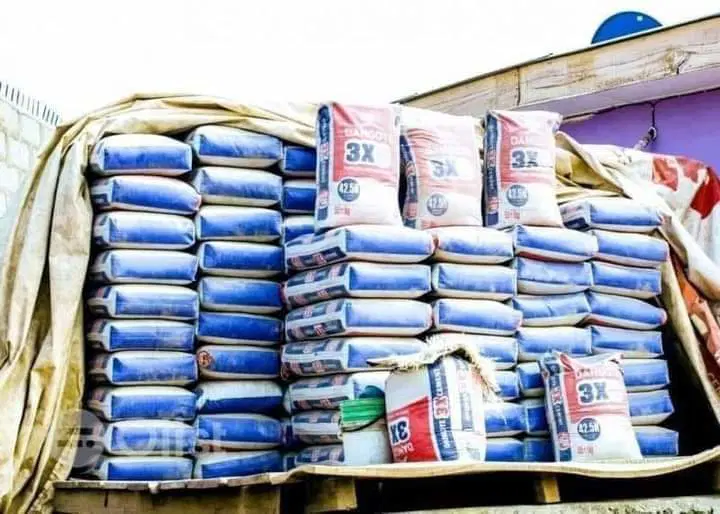Nigerian cement companies listed on the Nigerian Exchange Limited have experienced a sharp rise in input costs, with expenses soaring to N1.24 trillion in the first half of 2024.
This marks a 108.5% increase compared to the N592.32 billion spent during the same period in 2023. The increase is primarily attributed to inflationary pressures and the continued depreciation of the naira, which has significantly raised the cost of imported materials.
The weakening of the naira, which depreciated by 95% from N769.25 per dollar in June 2023 to N1,503 per dollar by the end of June 2024, has led to a significant rise in the cost of raw materials and energy sources like fuel and electricity. As many inputs are priced in foreign currencies, manufacturers have been forced to grapple with skyrocketing expenses.

This trend reflects the broader challenges businesses face across Nigeria, as they navigate a volatile economic environment. A look into the financial performance of cement companies, such as Dangote Cement Plc, BUA Cement Plc, and Lafarge Africa Plc, reveals that these firms are struggling with inflated production costs.
Dangote Cement reported an 85% increase in revenue, rising to N1.76 trillion in the first half of 2024 compared to N950.83 billion in 2023. However, the cost of sales jumped by 117.51% to N833.27 billion, consuming 47% of the company’s revenue.
READ ALSO: BUA Accuses Wholesalers of Hindering Nigerians from Buying Cement at Approved N3500
Similarly, BUA Cement’s revenue grew by 64.63%, reaching N363.94 billion, but its cost of sales surged by 121.54%, hitting N254.66 billion. This represents 69.97% of the total revenue.
Lafarge Africa also saw revenue rise by 49.52%, reaching N295.58 billion from N197.68 billion in 2023. Despite this, the cost of sales increased by 56.58% to N147.64 billion, accounting for 49.95% of its revenue.
The rising costs can be traced to several factors, including the removal of fuel subsidies, exchange rate harmonization, and naira devaluation. The impact of macroeconomic inflation is particularly pronounced, as domestic inflation remains elevated despite a slight drop in Nigeria’s headline inflation rate to 33.40% in July 2024, down from 34.19% in June.
Given the pressure of rising input costs, many cement manufacturers have increased product prices. Diesel, imported in U.S. dollars, and gas, priced in dollars, have added to the growing cost burden.
READ ALSO; Nigerian Cement Companies Thrive Amid Rising Operational Costs
In light of these challenges, Lafarge Africa’s CEO, Lolu Alade-Akinyemi, acknowledged that while the company sustained sales growth in the second quarter of 2024, the firm’s profits fell by 17.3% due to foreign exchange losses. Dangote Cement’s CEO, Arvind Pathak, noted that the firm managed to navigate the macroeconomic challenges, achieving double-digit volume growth of 10.9% in its Nigerian operations.
Despite the difficulties, Nigerian cement firms are focusing on strategic cost management and innovation to weather the storm and maintain profitability. However, rising inflation and further naira depreciation remain looming threats to the sector.



